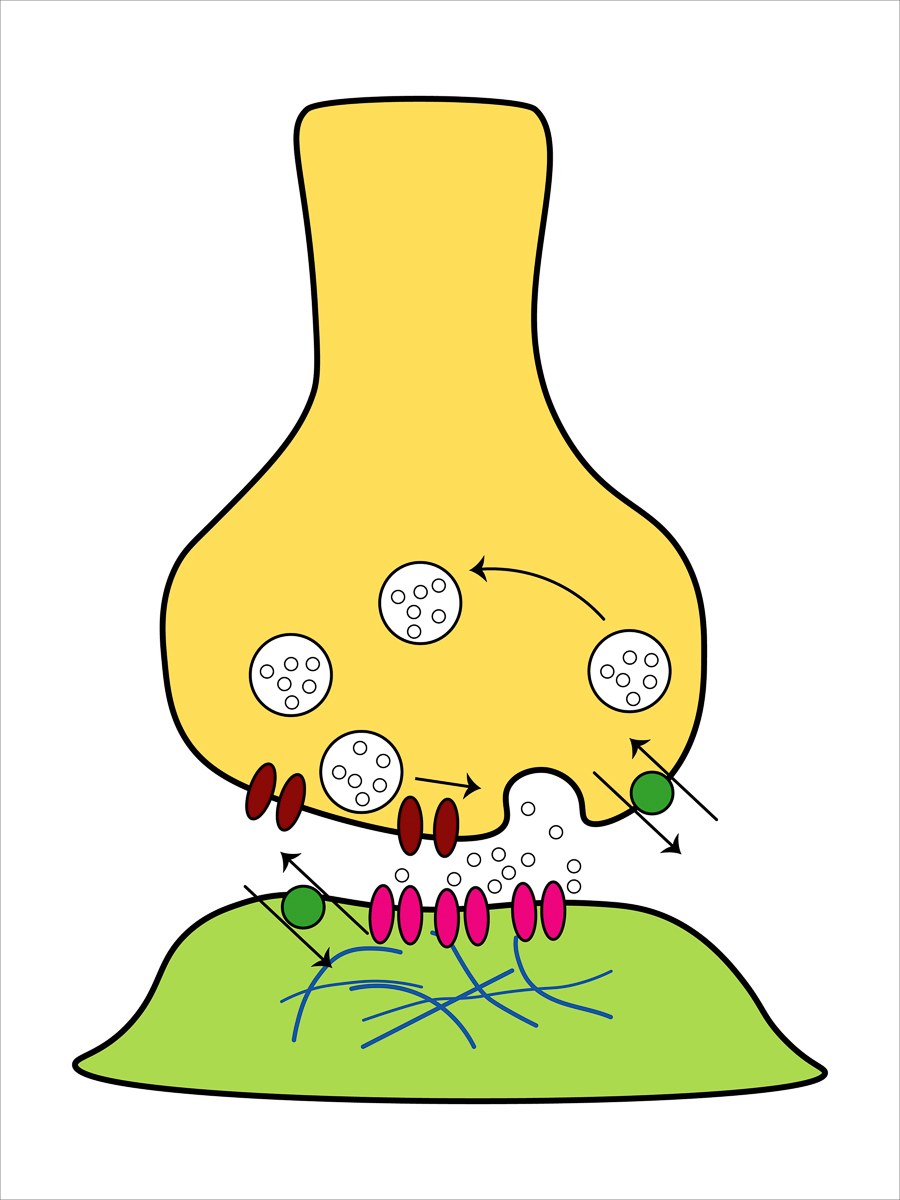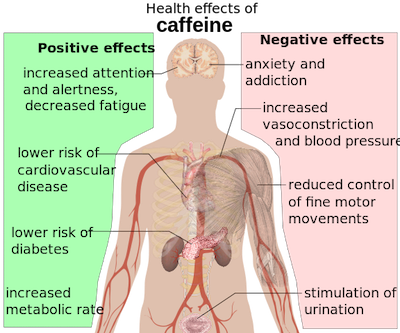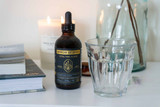Coffee as a Medicinal Herb
Coffee: A Health Food or a Health Risk?
Over the past year, I've noticed a growing trend of embracing coffee as a health food. Some even promote coffee alongside medicinal herbs. While this initially seemed frustrating and concerning, the use of coffee as a therapeutic substance has become so pervasive that it must be addressed. Don’t buy—literally and figuratively—into the coffee hype. For a detailed exploration of the harmful effects of coffee from a Classical Chinese Medicine perspective, see The Deleterious Effects of Coffee: A Chinese Medicine Perspective.
Coffee is Not a Health Food and Coffee is Not a Medicinal Plant
It may be tempting to think of coffee as a health food due to societal pressure and its delicious taste. At the height of my own coffee addiction, I tried to claim it as such. However, the truth is, coffee isn't good for you.
The cost of coffee is measured in terms of our foundational Qi—our Jing. Coffee borrows from your long-term vitality in exchange for a short-term buzz. Our society's obsession with growth and expansion often equates these pursuits with success. However, living in extremes leads to pathology, and both the world and its inhabitants endure serious consequences from this cultural obsession with growth (Cohen, Janicki-Deverts, & Miller, 2007).
How Coffee Affects the Body
Let's take a moment to understand how coffee works in the body by examining the neurotransmitter adenosine.
Adenosine is the neurotransmitter that makes us drowsy and sleepy. As it accumulates throughout the day, we become increasingly tired and eventually ready for sleep. In the absence of caffeine, and when a person is fully awake, there is little adenosine present. However, when we drink coffee, the caffeine, which is soluble in the blood-brain barrier, enters the synaptic cleft—the small space between neurons where neurotransmitters act—and antagonizes the adenosine receptors. This action renders the receptors blind to the adenosine present, making us feel awake and alert, and triggers the release of stimulatory neurotransmitters and hormones (Fredholm, Battig, Holmen, Nehlig, & Zvartau, 1999).

When the adenosine receptors are blocked, there is an influx of the neurotransmitters dopamine, glutamate, and gamma-Aminobutyric acid (GABA). These neurotransmitters operate unchecked and in excess, causing a highly stimulated state. Over time, the body adapts to the intake of coffee to counteract the adenosine receptors, which is why chronic caffeine use leads to the need for caffeine to feel awake, and the absence of it causes physical withdrawal symptoms. As the body continuously strives to reestablish homeostasis, it responds to the antagonism of adenosine receptors by creating more of them. When caffeine is not present, you suddenly sense a high level of adenosine, resulting in unbearable lethargy. Your head feels clouded, and the only way to clear it is to reset the receptors or ingest more caffeine (Juliano & Griffiths, 2004).
Sound like the work of a drug? There's a good reason for that. Caffeine is a drug; it is a central nervous system and metabolic stimulant. Caffeine is a psychological stimulant and is the most widely consumed psychoactive drug in the world. Most psychoactive substances are illegal, but not caffeine (Smith, 2002).
Coffee Works (In Good and Bad Ways) Because it Causes Stress in the Body
The aggravation of the adenosine receptors and the subsequent influx of stimulatory neurotransmitters increase stress in the body—not just in some people or some of the time, but in all people, all the time.
According to a study funded by the National Institutes of Health, "The effects of coffee drinking are long-lasting and exaggerate the stress response both in terms of the body's physiological response in blood pressure elevations and stress hormone levels, but it also magnifies a person's perception of stress." The author of the study, James D. Lane, Ph.D., concludes that "While today's cup of coffee might not, by itself, cause you much harm, the cumulative effects of drinking it day after day over a lifetime could really be unhealthy" (Lane, Adcock, & Williams, 1990).
The study also noted that on days when subjects ingested caffeine, "caffeine consumption significantly raised systolic and diastolic blood pressure consistently throughout the day and night, and adrenaline levels rose by 32 percent." Such a degree of stress only harms the body.
Stress has a very real and deleterious impact on the body. We do not need to elaborate on how bad stress is for you because everyone already knows how harmful it can be. So why consume something that increases the level of—and the damage caused by—stress in the body?
In short, the long-term consequences of stress include increased rates of heart disease, heightened susceptibility to infections, and decreased immune function; allergies and autoimmune diseases (including arthritis and multiple sclerosis); aggravated skin issues such as acne, psoriasis, and eczema; chronic pain, particularly in the back, shoulders, and neck area; and exacerbation of herniated discs, fibromyalgia, repetitive strain injury (RSI), and migraine headaches. Long-term stress can lead to type 2, insulin-dependent diabetes, and can contribute to infertility. This is just a brief overview of the long-term effects of stress on the body (Cohen, Janicki-Deverts, & Miller, 2007).

Coffee is stress.
Tolerance to caffeine begins within one to twelve days, at which point the "positive" effects of caffeine diminish, and you need more of the drug to achieve the same effect. This occurs because, as mentioned above, the body responds to caffeine by producing more adenosine receptors.
In one study, subjects given 900 mg of caffeine daily became fully tolerant within 18 days, with their mood, energy, and alertness matching those who were caffeine-free (Juliano & Griffiths, 2004). Once tolerance sets in, coffee drinkers can expect withdrawal symptoms once they stop drinking it. In fact, withdrawal from caffeine starts within just 12 to 24 hours after the last consumption—caffeine remains active in your body for this duration. The morning coffee impacts the night's sleep, even when falling asleep is not an issue, by preventing deep, reparative sleep cycles.
Most people will experience headaches after stopping coffee consumption, some experiencing debilitating tiredness coupled with severe headaches. Others may face depression, fatigue, lethargy, irritability, nausea, and vomiting during coffee withdrawal. These symptoms typically last around ten days, peaking for most at day three, and many report that the negative effects of coffee withdrawal can last up to 28 days (Juliano & Griffiths, 2004).
What About the Health Benefits of Coffee?
Despite the physical dependency and daily withdrawal symptoms associated with coffee drinking, chronic and habitual coffee consumption has been correlated (not causally linked) with a lower incidence of Parkinson's disease, colon cancer, and cirrhosis of the liver. It is crucial to note that these are correlations, indicating only that these conditions occur alongside coffee consumption, not that coffee causes these benefits. There is no established medicinal quality in coffee to account for any of these perceived health benefits. There are, however, numerous ways to enhance overall health and reduce disease incidence without consuming a substance that causes physical addiction and dramatically increases stress markers. While coffee cannot be proven to prevent disease, stress has been shown to cause chronic disease (Cohen, Janicki-Deverts, & Miller, 2007). Don't cut your nose off to spite your face.
But What About the Antioxidants in Coffee?
Yes, antioxidants are beneficial, but they are abundant in foods that do not trigger a widespread stress response in the body. When news articles state such things as " Coffee is a great source of antioxidants" or when studies proclaim that "Coffee is the number one source of antioxidants," what we are really learning is just how poor the average diet is. If a major source of antioxidants in a person's diet is coffee, it suggests that their diet is largely devoid of vegetables and fruits, which are excellent sources of antioxidants.
The ORAC value (which establishes the level of antioxidant activity) of coffee is between 15,000 and 17,000, which may seem impressive. However, this only places coffee in the bottom of the top 30 foods. Turmeric has an ORAC value of 127,068, cloves 290,283, and semi-sweet chocolate 18,053. Common foods consumed throughout the day in substantial amounts also have high ORAC scores, such as blueberries 9,621 (which have been shown to dramatically reduce aging in the brain), ginger root 14,840, black beans 8,494, lentils 7,282, apples 3,898, and so on. The point here is that a diet should be diverse and full of plants and their antioxidants, and if coffee is a major source of antioxidants in the diet, it is a warning sign of a poor diet (Wu et al., 2004).
Talking about coffee being beneficial for health is similar to those who justify drinking wine because of the antioxidants (particularly trans-resveratrol) that it contains. While studies have been inconclusive regarding the benefits of trans-resveratrol, to achieve the levels shown to be beneficial to health, a person would have to drink over 1,000 liters of red wine daily. As with coffee, it is wishful thinking.
Furthermore, though it is not widely discussed outside of the professional coffee industry, it is well known that coffee beans that have sat for several days after roasting (whole or ground) become rancid. The beans become rancid due to the high level of oil present in coffee combined with the extremely high levels of heat during roasting. Once oil reaches its smoke point, it becomes rancid, and rancid oil is a major contributor to oxidation in the diet, promoting and worsening heart disease. The coffee beans practically become deep-fried in their own oils during roasting, producing flavor compounds similar to those in French fries. So while coffee may contain antioxidants, it also causes oxidation in the body. It is like having a paycheck of $3,000 a month and bills totaling $3,500 a month. It's a losing proposition.
The Heavy Metals Present in Coffee
While comparing and contrasting the positive health benefits associated with coffee consumption against the known negative health effects, it is important to highlight that high coffee consumption is a considerable source of lead. Brewed coffee, prepared in various styles and from various beans, has been shown to contain different heavy metals, including manganese (Mn), cobalt (Co), nickel (Ni), chrome (Cr), silver (Ag), and lead (Pb). For the most part, these metals do not occur in disease-causing amounts, except for lead. For heavy drinkers of coffee, the intake of lead can be high enough to contribute to disease (Özden et al., 2014).
Where I live in New England, it is very common to have lead present in concerning amounts, both inside and outside the home, due to the age of homes and the long, widespread use of lead-based paints. When lead is present in the body, it becomes integrated into the bone matrix, as if it were calcium, making it nearly impossible to detoxify (because it becomes part of the bone structure). Once you have been exposed to lead and it becomes part of the bone matrix, you carry that lead throughout your life, releasing it gradually in small amounts into the bloodstream, which becomes especially problematic during pregnancy and osteoporosis. Compounding exposure to lead with a lifetime of coffee drinking seems particularly concerning.
Coffee as a Medicinal or Tonic Herb?
Many people in the health food community are linking and likening coffee to the group of medicinals known as tonics. There is a clear definition of what makes a medicinal herb a tonic medicine. In one of the earliest texts of Chinese herbalism, Shennong's Pharmacopeia of the Divine Farmer, tonics are referred to as the "superior class" of herbs. To be classified as a tonic, the herb must be able to be taken in larger amounts or over a long period of time and not cause any harm to the body. Clearly, coffee does not fall within—or anywhere close to—the category of tonic herbs. A tonic must be good for you, can be taken in great amounts over a long time, and produce no ill effects.
We may like the taste of coffee, the ritual of drinking it, or the buzz we get when we drink too much, but convincing ourselves that it is a tonic medicine is just wishful thinking. Not everything that is natural and feels good is healthy.
The herbalist and acupuncturist Brendan Kelly, who sees a deep connection between coffee consumption and Jing depletion, first introduced me to the adversarial relationship between coffee and vitality and the connection between coffee and climate change. Recently, in a private conversation, Qigong master Robert Peng connected the effect of coffee to the depletion of our Prenatal Yuan Qi—our deep, un-restorable reserve of vitality in the body. Both see the drinking of coffee connected with the symptoms of premature aging.
Coffee is like a credit card, borrowing from our long-term health and vitality for a quick fix of chemical stimulation. If we find ourselves drawn to stimulants, we should take it as an opportunity for introspection, asking what our body (or our soul) is missing and what it truly and deeply wants and needs. Maybe it's a cup of coffee. And if it is, drink it up and revel in it. Enjoy it. And don't drink another for a long time.
Coffee exacerbates excess Heat and Dampness in the body, contributing to the type of widespread pathology seen in both people and the earth. Over time, we can experience how coffee makes us feel worn out and tired. Coffee has only adversarial long-term effects on the body. It is not medicinal. Coffee is not good for you.
People sell coffee, including health food stores, because it makes money (ever pause and think about how much beer, wine, and coffee health food stores sell?), not because it promotes your health or well-being.
Final Thoughts
Maybe the Coffee Bar is Just a Bar
I am not advocating a life devoid of joy or living strictly by the book—excess in any direction is still excess. Choosing to live a life increasingly in accordance with theories of Chinese medicine is breaking free from the obsession many of us have with living in extremes—it is about finding peace and sustainability within the gradient, something that is difficult for many to do (including myself). Much of our lives exist oscillating within the poles, yo-yoing between the "good" and the "bad." Finding balance is where the real work begins.
What I advocate is understanding what we put into our bodies and making informed decisions about whether or not we want to consume those things. Sometimes the answer will be yes, sometimes it will be no. Think of coffee like other intoxicating drugs and choose to use it accordingly. After all, maybe the coffee bar is just a bar.
While I am adamant against drinking coffee and see it only as having negative effects on the body, given the right social setting, I will drink it. This is because coffee—as bad as it is—is a social drug. While this only happens a handful of times a year, I find that the positive effects of drinking coffee with friends far outweigh the negative effects it poses to my health. Building strong relationships and sustaining them is one of the most important things a person can do for their happiness and longevity, and in my opinion, this far outweighs the negative effect of a few cups of coffee.
References and Citations
Cohen, S., Janicki-Deverts, D., & Miller, G. E. (2007). Psychological stress and disease. JAMA, 298(14), 1685-1687. https://doi.org/10.1001/jama.298.14.1685
Fredholm, B. B., Battig, K., Holmen, J., Nehlig, A., & Zvartau, E. E. (1999). Actions of caffeine in the brain with special reference to factors that contribute to its widespread use. Pharmacological Reviews, 51(1), 83-133.
Juliano, L. M., & Griffiths, R. R. (2004). A critical review of caffeine withdrawal: Empirical validation of symptoms and signs, incidence, severity, and associated features. Psychopharmacology, 176(1), 1-29. https://doi.org/10.1007/s00213-004-2000-x
Lane, J. D., Adcock, R. A., & Williams, R. B. (1990). Caffeine effects on cardiovascular and neuroendocrine responses to acute psychosocial stress and their relationship to level of habitual caffeine consumption. Psychosomatic Medicine, 52(3), 320-336. https://doi.org/10.1097/00006842-199005000-00006
Özden, T. A., Sümer, H., & Güngör, Y. (2014). Heavy metals in commonly used and traded coffee and tea samples. Journal of Toxicology and Environmental Health Sciences, 6(1), 1-8.
Smith, A. (2002). Effects of caffeine on human behavior. Food and Chemical Toxicology, 40(9), 1243-1255. https://doi.org/10.1016/S0278-6915(02)00096-0
Wu, X., Beecher, G. R., Holden, J. M., Haytowitz, D. B., Gebhardt, S. E., & Prior, R. L. (2004). Lipophilic and hydrophilic antioxidant capacities of common foods in the United States. Journal of Agricultural and Food Chemistry, 52(12), 4026-4037. https://doi.org/10.1021/jf049696w
Site Disclaimers
General Guidence
The content on this site is provided for educational and informational purposes only and should not be construed as medical advice. Always consult a qualified healthcare provider before making changes to your diet, lifestyle, or health regimen, particularly if you are pregnant or nursing, under the age of 18, managing allergies or known sensitivities, or living with any medical conditions.
At RAW Forest Foods, your safety is our priority. Please note that our products are dietary supplements, not medications. The following disclaimer applies:
* These statements have not been evaluated by the Food and Drug Administration. These products are not intended to diagnose, treat, cure, or prevent any disease.
Ingredient Transparency and Allergen Awareness
We are committed to providing transparent ingredient information to help you make informed decisions. If you have or suspect you have allergies to any of our ingredients, we strongly advise against using our products, as allergic reactions can be severe.
Interaction with Medications
If you are taking any medications, consult with your healthcare provider before using supplements. Certain supplements may interact with medications, potentially altering their effectiveness or causing unwanted effects.
For more details, please review our full Terms and Conditions.






